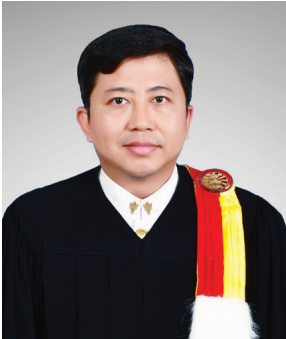Effects of the Health Promotion Model Development Program on the Quality of Life of the Elderly using Local Wisdom and Ways of Life
Main Article Content
Abstract
OBJECTIVES: This quasi-experimental design aims to study effects of the health promotion model development program on the quality of life (QOL) of the elderly using local wisdom and ways of life
MATERIALS AND METHODS: Health promotion model, development program, and QOL of the elderly using local wisdom. The way of life consists of 1) food according to nutritional principles that are local foods; 2) exercise using local materials or games; and 3) stress management that is consistent with the religion and cultural beliefs of the community. The sample group consisted of elderly people aged ≥ 60 years in Bang Khla District Chachoengsao Province, divided into intervention groups, and a control group of 30 people per group. Data were collected using questionnaires for the period from July 2022 to February 2023. Chi-square and Paired Samples T-test comparing results before and after within the experimental group (EG) and Independent Samples T-test.
RESULTS: The study found the elderly benefitted, in terms of health and QOL, when applying wisdom and ways of life. Food consumption in the experimental group (EG) (2.80 ± 0.31) and in the control group (CG) (4.06 ± 0.27), exercise in EG (1.86 ± 0.77) and CG (4.54 ± 0.25), and mental and spiritual health in the EG (2.60 ± 0.39) and CG (3.76 ± 0.49), when tested statistically, they were significantly different at p < 0.001 level in terms of QOL of the EG (2.88 ± 0.67) and CG (3.92 ± 0.84) significantly different at p < 0.001 level.
CONCLUSION: From the results of the study, it is recommended that the primary health service system apply activities for the elderly to promote health and develop QOL using local wisdom and ways of life.
Article Details

This work is licensed under a Creative Commons Attribution-NonCommercial-NoDerivatives 4.0 International License.
This is an open access article distributed under the terms of the Creative Commons Attribution Licence, which permits unrestricted use, distribution, and reproduction in any medium, provided the original work is properly cited.
References
Ploeg J, Yous ML, Fraser K, et al. Healthcare providers’ experiences in supporting community-living older adults to manage multiple chronic conditions: a qualitative study. BMC Geriatr 2019;19(1):316. doi: 10.1186/s12877-019-1345-2.
Ploeg J, Matthew-Maich N, Fraser K, et al. Managing multiple chronic conditions in the community a Canadian qualitative study of the experiences of older adults, family caregivers and healthcare providers. BMC Geriatr 2022;17(1):40. doi: 10.1186/s12877-017-0431-6.
Pfeuffer N, Beyer A, Penndorf P, et al. Evaluation of a health information exchange system for geriatric health care in rural areas: development and technical acceptance study. JMIR Hum Factors 2022; 9(3): e34568. doi: 10.2196/34568.
Phongsakchart P, Malai C, Noisiphum N, et al. Promoting behavior health according to local wisdom. Royal Thai Army Nurses 2019;20(3):44-53. (in Thai).
National Statistical Office Ministry of Digital Economy and Society. Chachoengsao Provincial Statistical Report 2020. Chachoengsao: Chachoengsao Provincial Statistical Office, Thailand, 2020.
Kino S, Bernabe E, Sabbah W. The role of healthcare system in dental check-ups in 27 European: multilevel analysis. J Public Health Dent 2017;77(3):244-51. doi: 10.1111/ jphd.12204.
Urnbull N, Chada W, Chuppawa W, et al. The relationship of knowledge and attitude towards elderly care practice of elderly caregivers. Hlth Sci Res J 2020;14(3):83-94.
Sun Y, Zhang X, Han Y, et al. Evolutionary game model of health care and social care collaborative services for the elderly population in China. BMC Geriatr 2022;22(1):616. doi: 10.1186/s12877-022-03300-3.
Hoshino S. Paying for the health and social care of the elderly. J Aging Soc Policy 1996;8(2-3):37-55. doi: 10.1300/ J031v08n02_04.
Chen X, Su D, Chen X, et al. Effect of informal care on health care utilisation for the elderly in urban and rural China: evidence from China health and retirement longitudinal study (CHARLS). BMC Health Serv Res 2022;22(1):271. doi: 10.1186/s12913-022-07675-2.
Gan Y, Li W, Cao S, et al. Patients’ willingness on community health centers as gatekeepers and associated factors in Shenzhen, China : a cross-sectional study. Medicine (Baltimore) 2016;95(14):e3261.doi:10.1097/ MD.0000000000003261.
Baum F, Freeman T. Why community health systems have not flourished in high income countries: what the Australian experience tells us. Int J Health Policy Manag 2022;11(1): 49-58. doi: 10.34172/ijhpm.2021.42
Raber M, Baranowski T, Crawford K, et al. The healthy cooking index nutrition optimizing home food preparation practices across multiple data collection methods. J Acad Nutr Diet 2020;120(7)1119-32. doi: 10.1016/j.jand.2020.01.008.
Kim JE, Factors affecting home cooking behavior of women with elementary school children applying the theory of planned behavior. Nutr Res Pract 2021;15(1):106-21. doi: 10.4162/nrp.2021.15.1.
Wises S. People council of Ing river basin: civil society dynamic in natural resource management in Ing river basin. J Budd Stud 2019;10(2):331-45. (in Thai).
McClintock CH, Anderson M, Svob C, et al. Multidimensional understanding of religiosity/spirituality relationship to major depression and familial risk. Psychol Med 2019;49(14):2379-88. doi: 10.1017/S0033291718003276.
Hajinejad F, Ebrahimi E, de Jong A, et al. Factors promoting Iranian older adults spirituality: a qualitative content analysis. BMC Geriatr 2019;9(2):132. doi: 10.1186/s12877-019-1146-7.
Nanthamongkolchai1 S, Phowat T. Influence of self-esteem and preparation for aging on the happiness of older Thai adults: a cross-sectional study. Open Access Maced J Med Sci 2022;10(B):532-7. doi:10.3889/oamjms.2022.8461.
Bao J , Zhou L, Liu G, et al.Current state of care for the elderly in China in the context of an aging population. Biosci Trends 2022;16(2):107-18 doi:10.5582/bst.2022.01068.


